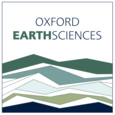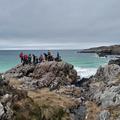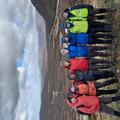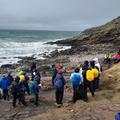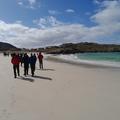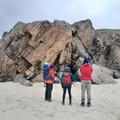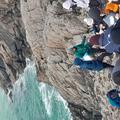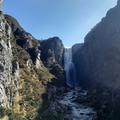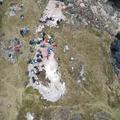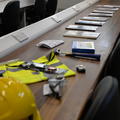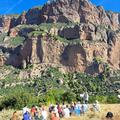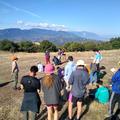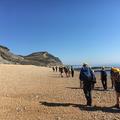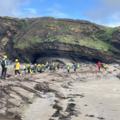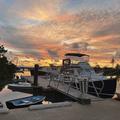Course Information
About the Course

We offer two degrees: a three-year Bachelors degree (BA in Geology) and a four-year Masters degree (MEarthSci in Earth Sciences)
For the first three years the two courses are identical. The fourth year allows students the option of deepening their training through a choice of higher-level specialisations and by carrying out a research project, which runs throughout the year.
The staff profile in our Department is young, and international: half of the faculty have either studied or taught overseas, and one third have taken up their posts in Oxford within the past five years. They include graduates in physics, chemistry, mathematics, and biology, as well as Earth sciences and geology. The course is continually evolving, reflecting our evolving understanding of the Earth – from the depths of the oceans, through the origins of life, the tectonics of continents, and the chemistry of the atmosphere, to the history of the solar system.
Use the tabs below to find out more about our undergraduate courses.
Course Structure
The course structure for the first three years is identical for the 3-year BA and 4-year MEarthSci, the fourth year is only completed by MEarthSci students.
Students take courses in 5 parallel themes
- Planet Earth (Geosphere, Modern Climate Processes, Building a Habitable Planet)
- Fundamentals of Geology I (Minerals, Rocks and Fossils)
- Fundamentals of Geology II (Structural Geology and Maps)
- Physics, Chemistry & Biology
- Mathematics and Scientific Computing
Field Courses (example destinations)
- Pembroke (Wales)
- Arran (Scotland)
- Day courses
Examinations
- Preliminary Examinations (4 written papers)
- Practical assessments
Students take all courses across five broad themes, although some courses straddle multiple areas
- Earth Deformation and Materials
- Sedimentary Environments and Palaeobiology
- Petrology
- Geochemistry, Climate and Carbon Cycle
- Mathematical & Geophysical Tools
Field Course (example destinations)
- Dorset
- Somerset
- Assynt
Examinations
- Part A1 Examinations (3 written papers)
- Practical assessments
Students choose 6 options from 10, which are currently:
- Natural Resources and the Energy Transition
- Biogeochemistry of Earth’s Surface
- Biological and Physical Oceanography
- Vector Calculus and Continuum Mechanics
- Volcanology, Igneous Processes and Petrogenesis
- Quantitative Palaeobiology
- Plate Tectonics
- Analytical Methods
- Chemistry of Earth’s Interior
- Geophysics of the Deep Earth
Field Course (example destination)
- Almeria, Spain
Independent Work
- Independent Summer Project (for example a geological mapping project, geochemical field mapping project or a geophysical data analysis project)
- Extended Essay
Examinations
- Part A2 Examinations (6 written papers)
If you end your study here you will graduate with BA Degree (Geology)
Student choose 4 options from 8, which are currently:
- Planetary Science
- Structure & Dynamics of the Earth’s Mantle
- Coevolution of Earth and Life
- Palaeobiology
- Rock and Palaeo-magnetism
- Topics in Climate Science
- Topics in Volcanology
- Environmental Geophysics
Field Course (example destinations)
- Greece OR Bermuda
Independent Work
- Research Project
Examinations
- Part B Examinations (4 written papers)
If you end your study here you will graduate with MEarthSci Degree (Earth Sciences)
Field Courses
An appreciation, understanding and experience of fieldwork is a vital part of an Earth Scientist’s training. Our field courses are designed to provide a wide range of practical exercises and field experience in geology and geophysics: observing, measuring, recording, mapping, and problem-solving. Students complete up to 90 days of field training throughout the course, including, for many, a 4-6 week independent mapping project in the summer after second year. For many, the individual mapping is the highlight of their undergraduate career.
Fieldwork destinations include Dorset and Somerset (England), Assynt and Arran (Scotland), Pembrokeshire (Wales), Almeria (Spain), Santorini (Greece), and Bermuda. More information about field courses for each year of the course can be found in the Course Structure section above.
Learning about, and participating in, fieldwork is an important outcome of the course, and as such, the Department fully funds all the required undergraduate field courses. However, to do justice to your third year mapping project, and some fourth year projects, you may require additional financial support. Further details can be found on our Student Life page.
Teaching
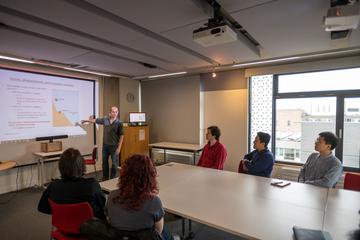
Our combination of lectures, practical classes, tutorials and field courses provide an unrivalled education.
Tutorials are the most distinctive feature about studying in Oxford: weekly classes of between two and four students. Work is often completed before the tutorial – this could be anything from a problem set, a set of specimens, a dataset or a map – and in the tutorial the answers are discussed, or the context of the problems is explored. Tutorials are led by lecturers, who are leading experts in their field, or by graduate students or post-doctoral researchers. Either way, the close contact this gives you with people who are actively engaged in research will be a stimulating and challenging experience.
Helpful Resources
The Undergraduate Handbook contains more information about the course, teaching, and structure.
You can download the latest edition here:
Listed below are books and online resources which offer an insight into various aspects of Earth sciences. This list is not intended to be exhaustive, nor are these texts considered ‘required reading’ for the undergraduate course. An asterisk (*) indicates work by current or former faculty members. We hope you find them interesting!
Please note, you are not expected to have read any of these prior to applying or attending an interview – they are for reference and interest only.
Colliding Continents by Mike Searle*
Earth Story by Simon Lamb* and David Sington
T. Rex and the Crater of Doom by Walter Alvarez
Supercontinent by Ted Nield
The Goldilocks Planet: The 4 billion year story of Earth’s climate by Jan Zalasiewicz and Mark Williams
How to Build a Habitable Planet by Wally Broecker and Charles Langmuir
The Two Mile Time Machine by Richard Alley
The Earth: A Very Short Introduction by Martin Redfern
Lucky Planet: Why Earth is Exceptional – and What that Means for Life in the Universe by David Waltham
An Introduction to Geology by Chris Johnson, Matthew D. Affolter, Paul Inkenbrandt and Cam Mosher - available online at opengeology.org
Frequently Asked Questions
The undergraduate course is a blend of lectures, practical classes, tutorials and field trips. Lectures and practicals all take place within the Earth Sciences building.
Lectures are taught by our faculty and usually last one hour. Most lecture courses have associated practical classes, which take place in our teaching labs and often involve a variety of activities: studying rock or fossils specimens, using microscopes for petrographic study, analysing or drawing geological maps, or carrying out computational exercises. Practical classes are led by lecturers, but supported by postgraduate demonstrators who are on-hand throughout the sessions to answer your questions and provide support. Alongside your lectures and practicals you will have small group teaching within your college groups (two to four students) in the form of tutorials.
Tutorials are small group teaching sessions, with your college group. They typically involve you meeting up about once a week with your college tutor and the other Earth Sciences students within your college year group (two to four students). Tutorials offer the opportunity to ask your tutor questions about the course material and to discuss topics that go beyond your lecture material. They are designed to both challenge you intellectually but most importantly support you through the learning process. Tutorials are fairly unique to Oxford and a really great system as they allow you to get to grips with your course and further your understanding in a way that you might not be able to on your own or in a large class environment.
Earth sciences places a stronger emphasis on quantitative skills and the science underlying processes on Earth, hence our course requirements of maths and either physics or chemistry. Our course spans across many topics related to scientific understanding of the Earth and other planets, including climate, geology, the atmosphere, oceans, volcanic processes, palaeontology, natural resources, and many others. This overlaps with some areas covered by geography.
Absolutely! You will spend the first and second year of your course learning the fundamentals and key principals across a broad range of topics, but have the option to really hone in on your areas of interest in your third and fourth years, when you can choose the course modules you would like to study. This may be oceanography and climate, tectonics and geophysics, computational Earth sciences, palaeobiology, or volcanoes and earthquakes. In your fourth year, students undertake an independent research project of their choice. This offers the opportunity to carry out real, cutting edge research alongside academic staff. Depending on your area of interest and project choice, this may be research carried out through fieldwork, laboratory experiments, or using sophisticated modelling or computational software.
Our students have a range of different fitness levels. When constructing the field courses we have thought carefully about how to accommodate this, and while a very basic level of fitness is ideal, we always take into account the requirements of individual students on a day-to-day basis, depending on the planned activities. We do not put our students in a position where they have to climb any outcrops. If students have any concerns at any point prior to or during the field course, we actively encourage them to speak to the trip leader or our friendly team in the academic office.
A degree in Earth sciences can lead you almost anywhere! Some of the most highly valued skills that our graduates develop during the course of their degree are critical thinking, the ability to work independently and as part of a team, to analyse data at a planetary and microscopic scale, and to know how to apply knowledge from other sciences, particularly in a numerate way, in order to problem solve. These skills are highly valued by employers from a wide range of sectors and our graduates go on to successful careers in the environmental, resource exploration, finance, risk management, research and teaching sectors, amongst many others.
This depends entirely on your choice of career and many of our graduates go on to careers in applied geosciences without additional degrees. For some jobs in for example, geotechnical engineering, it can be helpful to complete a further master’s degree in your specialist field, although bear in mind that many companies also offer graduate training programmes where you would receive this equivalent training on the job. If you know which sector you might be interested in pursuing a career, you can find out more about the entry level requirements through the University Careers Service website.

